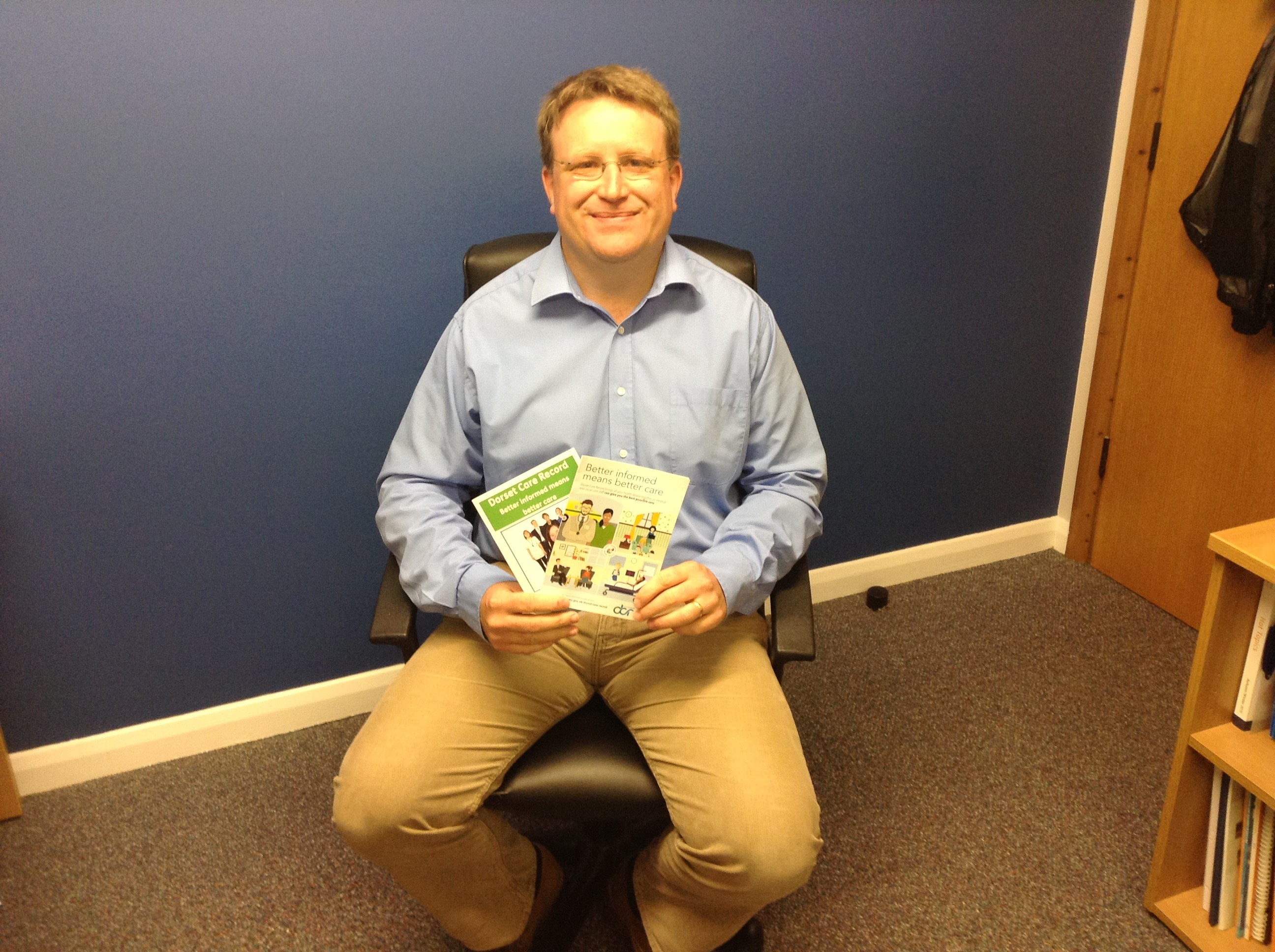
Our Chair and Weymouth GP Dr Ben Chennell talks about how the Dorset Care Record will help GPs in their day to day work.
GPs will benefit from the Dorset Care Record as the joined up digital system will reduce bureaucracy and make patient care much safer, according to Chair Dr Ben Chennell.
Ben, who grew up in Poole and attended St George’s Hospital, London Medical School, has been a GP at the 18,000 patient, 15 partner Preston Road surgery on the outskirts of Weymouth since 2008.
He became interested in the Dorset Care Record as he felt it could solve some of the day to day problems GPs face in getting access to important health and social care patient information.
“There has tended to be a lack of communications between health and social care with the tendency for both to work in silos meaning it has been difficult to access that information.”
Ben is keen for GP surgeries to sign up to the Dorset Information Sharing Charter (DISC), which provides the foundation for safe and secure information sharing in a multi-agency environment for the Dorset Care Record.
He highlights the Caldicott guidance which says GPs have a duty to share as appropriate, adding that signing up to the DISC should be a priority and will help lighten the extreme workloads currently being endured.
“GPs have seen a huge increase in workloads but this will help make their working life easier.”
GPs will also be required to sign Personal Information Sharing Agreements (PISA) to support the specific details of data shared with partners using the Dorset Care Record system.
Ben believes it is right for GPs to start promoting the Dorset Care Record to patients across the county to allow patients to become fully informed about its benefits and to start to talk about the use of the presumed consent model.
“I believe this is a really exciting time. The Dorset Care Record will reduce the amount of time needed looking for information across the health and social care world.
“It will make patient care much safer and will be a key enabler for safeguarding.
“And it will hopefully reduce the amount of consultation time and the amount of bureaucracy that we face on a day to day basis,” he added.


